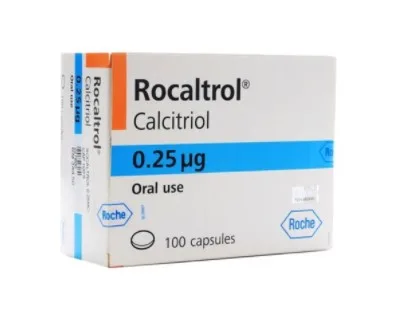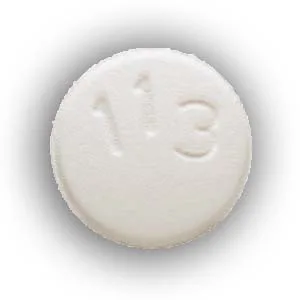- Your cart is empty
- Continue Shopping
Product

Resotran
$0.00
- Canadian Pharmacy Online Pharmacy | Online Canadian Pharmacy
- Need More Information Call Us 1-833-356-6337
Product Details
How does this medication work? What will it do for me?
Prucalopride belongs to the class of medications called prokinetic agents. This medication is used by women experiencing chronic (long-term) constipation that is not caused by medications or another medical condition. Prucalopride is used after other laxatives have been tried and have not provided enough relief from the constipation.
Prucalopride works by increasing peristalsis (the rhythmic, wave-like muscle contractions needed for bowel movements) in the digestive system, thereby increasing the number of bowel movements.
Your doctor may have suggested this medication for conditions other than those listed in these drug information articles. If you have not discussed this with your doctor or are not sure why you are taking this medication, speak to your doctor. Do not stop taking this medication without consulting your doctor.
Do not give this medication to anyone else, even if they have the same symptoms as you do. It can be harmful for people to take this medication if their doctor has not prescribed it.
What form(s) does this medication come in?
1 mg
Each white to off-white, round, biconvex tablet marked “PRU 1” on one side contains prucalopride 1 mg. Nonmedicinal ingredients: tablet core: lactose monohydrate, microcrystalline cellulose, colloidal silicon dioxide, and magnesium stearate; coating: hypromellose, lactose monohydrate, triacetin, titanium dioxide, and macrogol 3000.
2 mg
Each pink, round, biconvex tablet marked “PRU 2” on one side contains prucalopride 2 mg. Nonmedicinal ingredients: tablet core: lactose monohydrate, microcrystalline cellulose, colloidal silicon dioxide, and magnesium stearate; coating: hypromellose, lactose monohydrate, triacetin, titanium dioxide, macrogol 3000, iron oxide red, iron oxide yellow, and FD&C Blue No. 2 Aluminum Lake.
How should I use this medication?
The recommended adult dose for prucalopride is 2 mg taken once a day. For seniors, the recommended starting dose is 1 mg taken once a day. If necessary the dose may be increased to 2 mg once daily.
Many things can affect the dose of medication that a person needs, such as body weight, other medical conditions, and other medications. If your doctor has recommended a dose different from the ones listed here, do not change the way that you are taking the medication without consulting your doctor.
If there has been no bowel movement after taking prucalopride for 3 or 4 days, contact your doctor. Your doctor may suggest adding a “rescue” laxative to be taken occasionally while you are taking prucalopride.
This medication may be taken with food or on an empty stomach. Try to take it at the same time each day.
It is important to take this medication exactly as prescribed by your doctor. If you miss a dose, take it as soon as possible and continue with your regular schedule. If it is almost time for your next dose, skip the missed dose and continue with your regular dosing schedule. Do not take a double dose to make up for a missed one. If you are not sure what to do after missing a dose, contact your doctor or pharmacist for advice.
Prucalopride should be kept in its original blister packaging to protect it from moisture. Store this medication at room temperature, and keep it out of the reach of children.
Do not dispose of medications in wastewater (e.g. down the sink or in the toilet) or in household garbage. Ask your pharmacist how to dispose of medications that are no longer needed or have expired.
Who should NOT take this medication?
Do not take this medication if you:
are allergic to prucalopride or any ingredients of this medication
have kidney disease that requires dialysis
have serious problems with your digestive system, such as a tear in the wall of the digestive system, a blockage in the digestive system, or inflammatory disease of the intestine such as Crohn’s disease or ulcerative colitis
have galactose intolerance or glucose malabsorption (a rare hereditary disease)
What side effects are possible with this medication?
Many medications can cause side effects. A side effect is an unwanted response to a medication when it is taken in normal doses. Side effects can be mild or severe, temporary or permanent.
The side effects listed below are not experienced by everyone who takes this medication. If you are concerned about side effects, discuss the risks and benefits of this medication with your doctor.
The following side effects have been reported by at least 1% of people taking this medication. Many of these side effects can be managed, and some may go away on their own over time.
Contact your doctor if you experience these side effects and they are severe or bothersome. Your pharmacist may be able to advise you on managing side effects.
abdominal pain
back pain
diarrhea
dizziness
enlargement of abdomen or stomach
headache
gas
nausea
sinusitis
tiredness
Although most of the side effects listed below don’t happen very often, they could lead to serious problems if you do not seek medical attention.
Check with your doctor as soon as possible if any of the following side effects occur:
abnormal heart rhythms (such as fast or slow heart rate, palpitations)
chest pain
pounding, rapid heartbeat (palpitations)
signs of depression (feeling sad, losing interest in things you used to enjoy, weight changes, changes in sleep habits, feelings of guilt or worthlessness, thoughts of suicide)
signs of kidney problems (e.g., increased urination at night, decreased urine production, blood in the urine, change of urine colour)
Stop taking the medication and seek immediate medical attention if any of the following occur:
severe diarrhea (watery; may also be bloody) or worsening abdominal pain
thoughts of suicide or self harm





